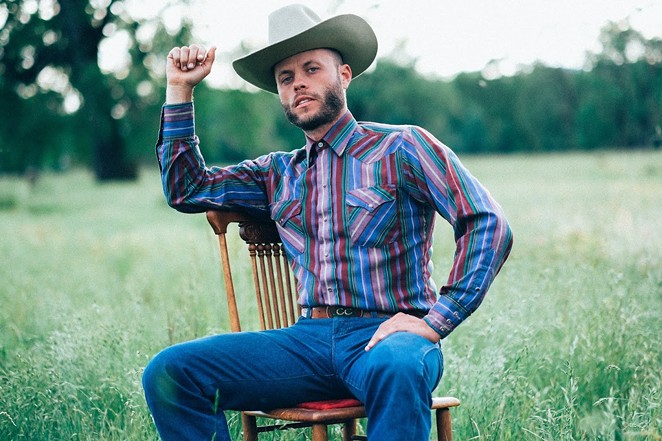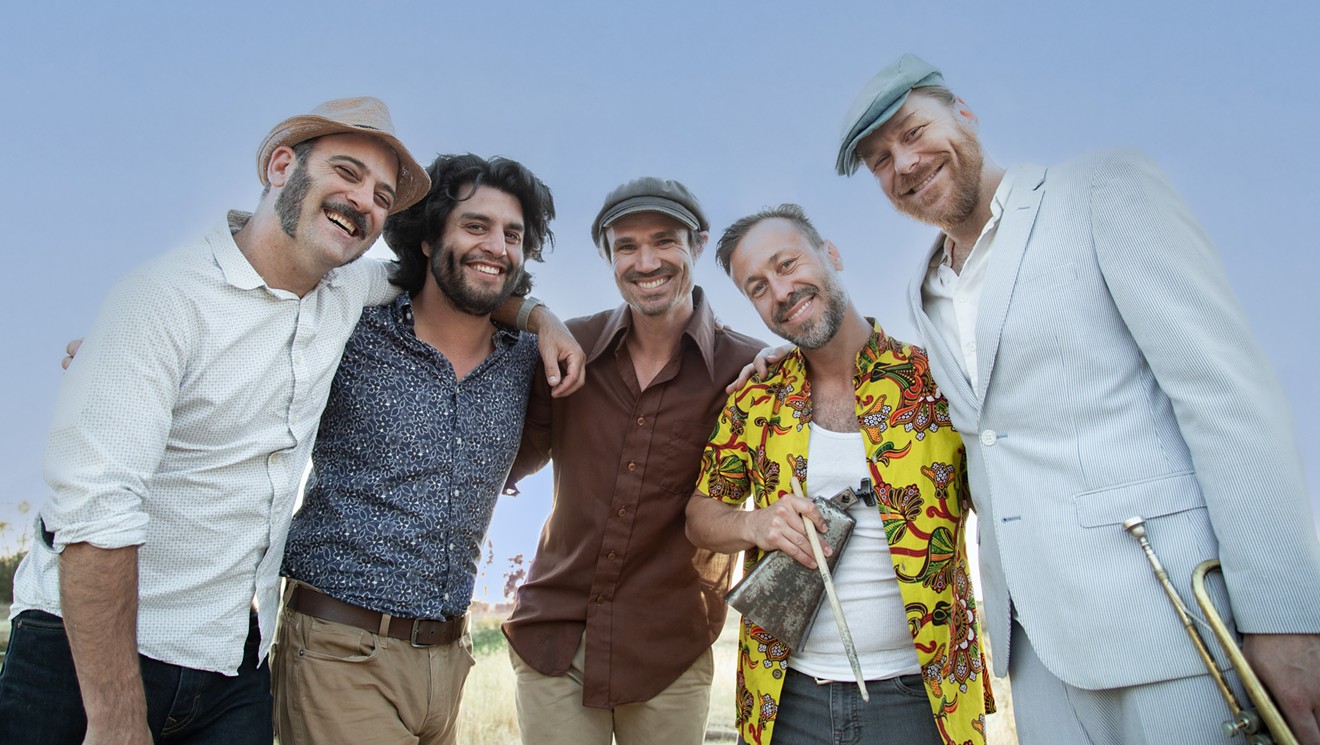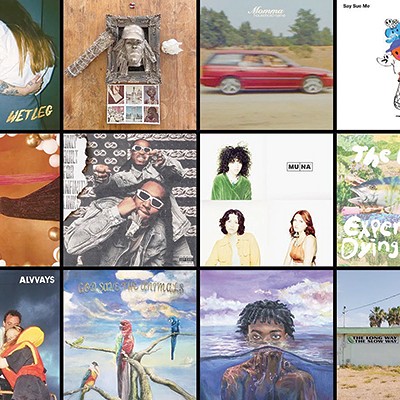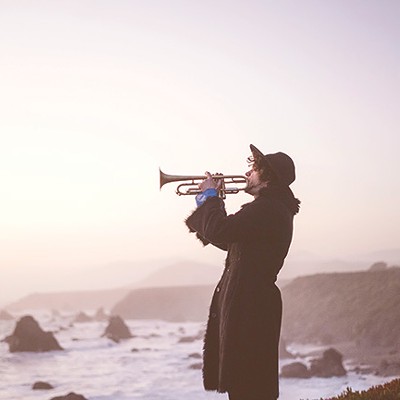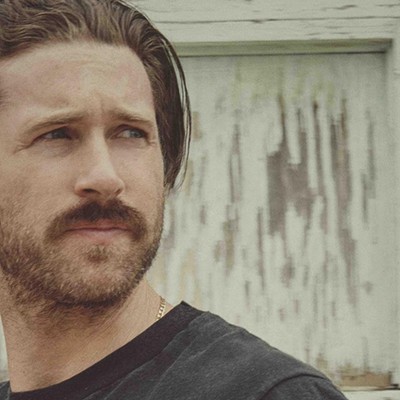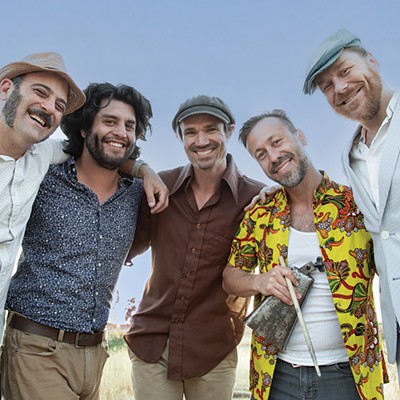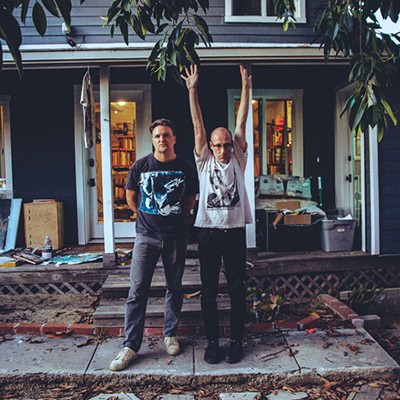Charley Crockett is a man of the South. Even though he—as Crockett puts it—has "hobo'd around" to many corners of the country, he still feels a special connection to the place that made him: a trailer outside of Los Fresnos, in the Rio Grande Valley of Texas. Other places that have left stamps on Crockett include the French Quarter in New Orleans, Dallas and New York, as he played in a number of subway cars working on his craft.

I spoke with Crockett on the phone while he and the band were at a mechanic shop in Lubbock, Texas, gearing up to make the road trip to Bend for his first-ever show here. We talked about his new album, "The Valley," hitchhiking and being a street performer, his connection to the Rio Grande Valley and even his clothes. Crockett is the smoothest dressed cowboy you might ever see.
Crockett recorded "The Valley" in January, just one week before he was set to have two open heart surgeries. A bold choice, some might think, but Crockett, 35, knew it was something he needed to do.
"I've always used music to get me through, ya know? It might seem like a crazy time to record but it was something I was able to really focus on and was a really positive thing for me," Crocket recalls. "I knew if I didn't make that record then I probably wouldn't have put out a record at all this year. I was sitting there recovering from surgeries and sh*t, being on my medications and rehab—having those recordings was the most comforting thing in the world."
“I didn’t really think about it until this moment, but I guess that’s really why I made that record the way I did—how comforting the idea of the Valley in my mind is as a place of refuge.”
tweet this
The result is Crockett's most personal album to date—and a nod to home.
"I was young enough up until that point to not really be aware of my mortality. I'd never been faced with it on that level. I was scared, man," says Crockett. "The older I get the more I visualize the Valley in my mind. It's a very comforting thing for me. I didn't really think about it until this moment, but I guess that's really why I made that record the way I did—how comforting the idea of the Valley in my mind is as a place of refuge."
Crockett paints a picture of his home region—from black gators in the lagoon to grapefruit and orange groves, 10-foot tall sugarcane, mesquite trees and the plethora of Tejano music. "The valley is a magical place, man. I could take you down there and show you in a very magical way."
Still, places beyond home shaped him, too. For many years Crockett lived the life of a troubadour—sleeping where he could, hitchhiking and street performing. As one would imagine, street performing is a total different ballgame than the mainstream music industry. As Crockett says, you're playing in places where people aren't expecting you—where you're not the main attraction.
"This might sound cheesy, but one of the things I learned out on the street is how to stand behind my guitar. I learned how to become that person. That this was my place in the world."
Seeing people put money right into his guitar case was a teaching moment for Crockett, as he was able to see what actually worked from a performer's perspective. Today you might say that Crockett wears some of the coolest outfits around, but it was initially his way of catching people's eye—and it also helped his hitchhiking because, "It's easier to get picked up on the side of the highway when you don't look like you're going to stink their car up."
Crockett has also become known for his fantastic covers of some of music's greatest gems through his "Lil G.L." projects. His take on Tanya Tucker's "Jamestown Ferry" is incredible—as are his versions of "The Lost Highway" by Hank Williams or the "T-Bone Shuffle" by T-Bone Walker.
"I had a dude tell me this in New York City on the Upper West Side, I was playing in this coffee shop. He said, 'Man, you strike me as a young man that never spent any time wondering if you were good or not.' And I guess that's how I approach my music," Crockett tells the Source. "I'll tell you what my real secret is: I learned very quickly that if I tried to sing it like them that I would look bad. Nobody can sing like George Jones. Literally."
While many people would call out Crockett's music as country or blues, he's found this sweet spot that touches the edges of a lot of other genres like folk, soul, and even R&B—kind of the way the Gulf Coast touches the borders of so many states. To this day Crockett is big fan of rap music. Growing up, he was heavily influenced by the Chopped and Screwed era of hip-hop, developed in the South. Even he doesn't know what to call his music yet.
"I've always called it by region—Texas or Louisiana music. Country soul is another one they call it," says Crockett. "Recently, me and my drummer in the band were watching a movie on the bus and at the end of the movie the Paramount Pictures thing came up and the screen froze—and underneath the mountain it said 'Gulf Coast Western.' So that's a new term we've been using. I put it on a t-shirt—I think we might have made that up. Put that in the article so I can lay claim to it!"
Charley Crockett
Fri., Nov. 1, at 9pm
Volcanic Theatre Pub
70 SW Century Dr., Bend
$16

